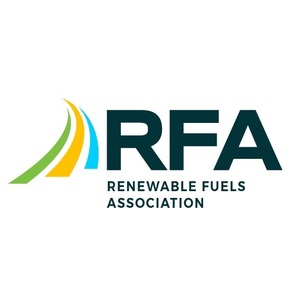If governors' E15 petition is delayed, emergency waivers needed

March 23, 2023
BY Renewable Fuels Association
If the Environmental Protection Agency decides to defer implementation of year-round E15 petitions from eight state governors until 2024, then the agency must exercise its authority to issue emergency waivers allowing continued sales of E15 this summer to address extreme and unusual fuel supply conditions, according to a letter sent today by the Renewable Fuels Association.
Earlier this month, EPA proposed to approve petitions from eight states that would allow the year-round sale of E15 in their states. Unfortunately, EPA is also proposing to delay implementation of the governors’ petitions until the summer of 2024, meaning E15 would not be permitted in most of the country during the summer of 2023. However, in today’s letter to EPA Administrator Michael Regan, RFA President and CEO Geoff Cooper noted that the same fuel supply circumstances that justified emergency waivers last summer still exist in the marketplace today.
Advertisement
“War in Ukraine continues to disrupt the U.S. fuel supply,” Cooper wrote. “Total U.S. gasoline stocks fell to just 229.6 million barrels last week, 5 percent below year-ago levels and the lowest for this time of year since 2015. Meanwhile, total stocks of crude oil and petroleum products are also down 5 percent from a year ago and have fallen to a 19-year low for this time of year.” The letter also highlights recent warnings by market analysts about further tightening of gasoline inventories as summer approaches and the potential for gas prices to hit $5 per gallon again.
EPA’s decision to issue emergency waivers during the summer of 2022 helped avert potential shortages and lowered prices at the pump, according to the RFA letter.
Advertisement
“During the summer of 2022, consumers choosing E15 saved an average of 20-30 cents per gallon compared to regular E10 gasoline,” Cooper wrote. “Nationwide, the availability of E15 last summer reduced consumer spending on gasoline by nearly $60 million. Emergency waivers allowing summer sales of E15 would yield even greater economic benefits in 2023, as more retail stations are offering the fuel than at this time last year. In addition, E15 reduces lifecycle greenhouse gas emissions and cuts tailpipe pollution linked to poor air quality. Clearly, it is in the public interest to grant a waiver allowing E15 sales to continue this summer.”
Today’s letter follows Cooper’s testimony at an EPA hearing on Tuesday and a letter sent that same day by a bipartisan group of governors calling on EPA to ensure consumers have year-round access to lower-cost, lower-carbon E15.
Related Stories
CountryMark on July 22 celebrated the completion of more than $100 million in upgrades at its refinery in Indiana, including those related to soybean oil storage. The facility produces renewable diesel via coprocessing technology.
ATOBA Energy and Air Moana are partnering to implement scalable solutions for the supply of SAF. The collaboration aims to ensure long-term SAF availability while supporting local initiatives to develop sustainable fuel production in Tahiti.
While final IRS guidance is still pending, the foundation of the 45Z program is well defined. Clean fuel producers should no longer be waiting; they can now move forward with critical planning and preparation, according to EcoEngineers.
Neste Corp. on July 24 released second quarter results, reporting record quarterly renewable product sales volumes despite weaker margins. SAF sales were up nearly 80% when compared to the first quarter of 2025.
Valero Energy Corp. on July 24 released second quarter results, reporting a profitable three-month period for its ethanol segment. The renewable diesel segment posted a loss, but the company’s new sustainable aviation fuel (SAF) unit operated well.
Upcoming Events










